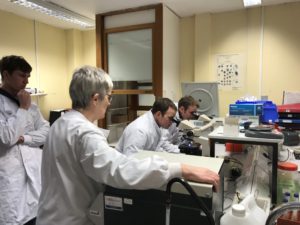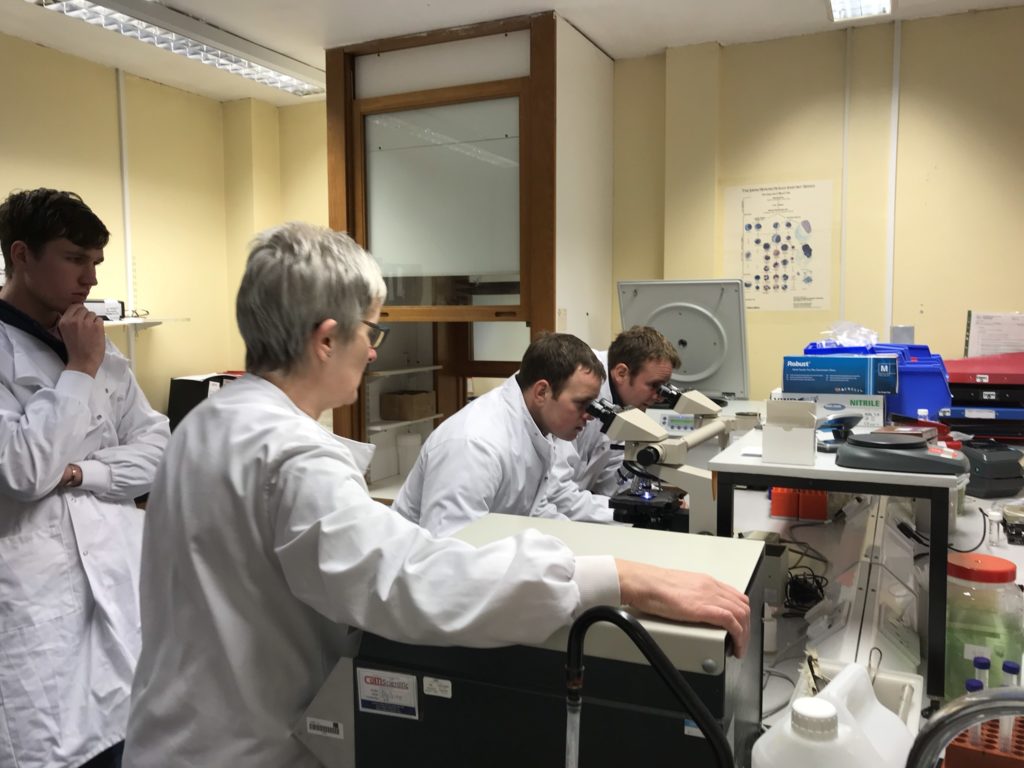New Entrants to Farming: Animal Health & Welfare Workshop (Borders) – Event Summary
13 December 2017 New entrants to farming in the Borders recently attended an informative, hands on workshop on maintaining and improving animal health at the SAC Veterinary Services Centre at Greycrook, St Boswells.
New entrants to farming in the Borders recently attended an informative, hands on workshop on maintaining and improving animal health at the SAC Veterinary Services Centre at Greycrook, St Boswells.
Barbara Watson, one of the local SAC Veterinary Investigation Officers, began the meeting with an overview of the work carried out by SAC Vet Services. Barbara explained the causes of some topical issues at this time of year, such as bovine pneumonia, and how best to manage and prevent outbreaks.
Barbara’s presentation can be found here.
Focus then turned to ill thrift in the adult ewe. SAC Veterinary Investigation Officer Lynn Gibson discussed the causes of ill thrift, and explained what tests could be carried out to investigate potential causes.
Lynn’s presentation can be found here.
Everyone was then provided with protective clothing and given a tour of the veterinary centre at Greycrook. This included a visit to the post mortem (PM) room, where a PM demonstration was carried out on two thin ewes. This was a really informative session that gave the group a useful insight into how the causse of conditions are investigated and diagnosed.
This workshop generated a lot of good discussion which allowed those attending to take home some very useful information that can be put into practice on-farm.
Take home messages included:
- Your farm vet should be your first point of contact to discuss any concerns or issue you have.
- Testing to diagnose problems such as Johne’s in live animals can be difficult and become very costly.
- Post mortem examination is a more effective way to diagnose/rule out a range of conditions or deficiencies.
- Ideally, bring poor-doing animals to the lab alive to allow them to be visually assessed before being euthanised and PM’d..
- Where an animal has died, submit it to the lab for PM as soon as possible.
- In abortion cases, take the placenta for PM too if possible as this can aid diagnosis.
- Answers are not always obvious from a PM but a negative diagnosis is still a positive!
Sign up to the FAS newsletter
Receive updates on news, events and publications from Scotland’s Farm Advisory Service

